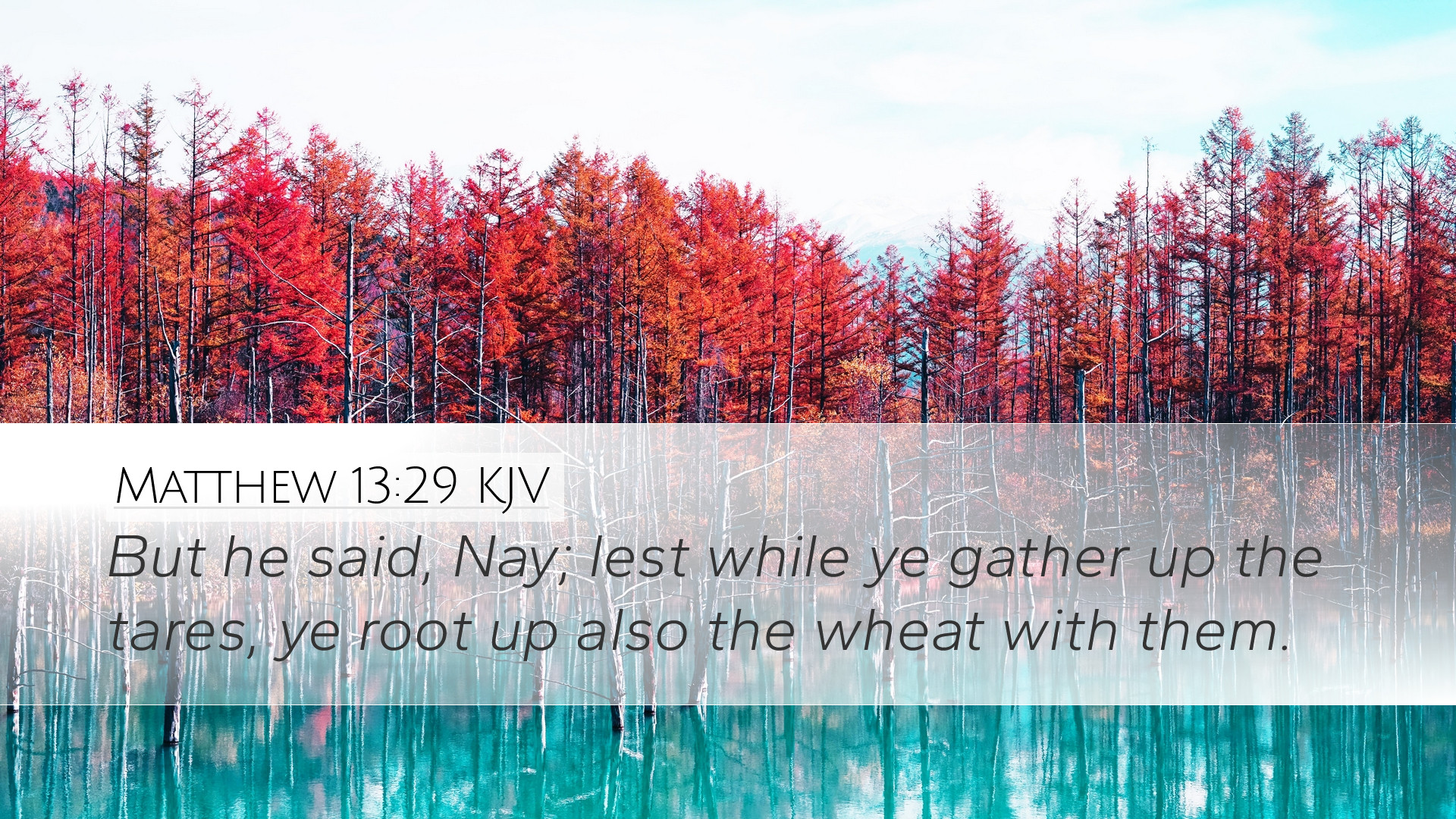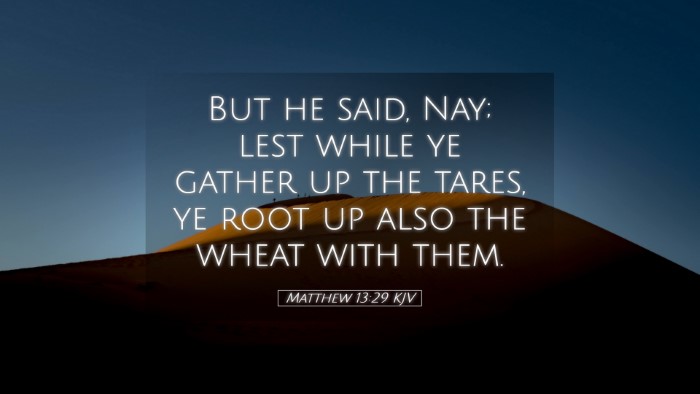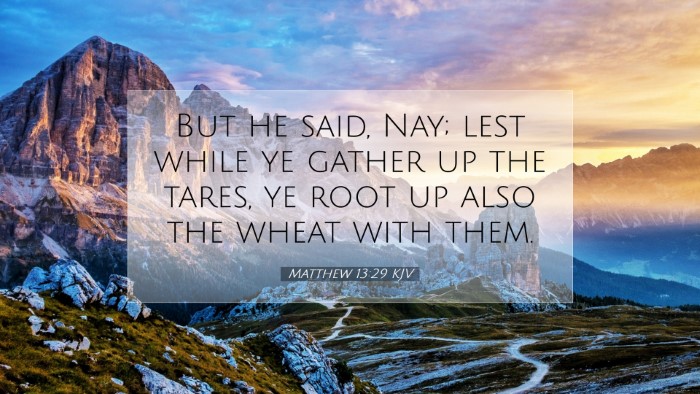Commentary on Matthew 13:29
Verse: "But he said, 'No; lest while you gather up the tares, you also uproot the wheat with them.'" (Matthew 13:29)
Contextual Overview
This verse is part of the Parable of the Wheat and the Tares, where Jesus articulates profound truths about the kingdom of heaven. The parable illustrates the coexistence of good and evil within the world and the church. The 'wheat' symbolizes the true believers while the 'tares' represent those who merely appear to be believers but do not truly possess faith.
Insights from Matthew Henry
Matthew Henry emphasizes that the owner of the field possesses wise discernment. He perceives that if the tares are uprooted, the wheat might also suffer damage. This illustrates God's patience and wisdom in dealing with evil in the world.
- Wisdom of God: Henry remarks that God's decisions often reflect an understanding that human intervention might lead to more harm than good.
- Eschatological Implications: He indicates that the final judgment will separate the good from the evil fully, and in the meantime, both coexist for reasons beyond human understanding.
- Christian Carefulness: The commentary reminds believers to be cautious in how they handle issues of discipline and judgment within the church, advocating for a balance of mercy and truth.
Insights from Albert Barnes
Albert Barnes's commentary delves into the implications of this verse regarding practical theology and church life. He highlights the following points:
- Great Care Required: Barnes notes that the act of uprooting tares must be approached with care, as the intent to eliminate evil could inadvertently cause the loss of good.
- Nature of the Church: He explains that the church is a mixed body, and it is not the role of believers to determine the fate of others prematurely. The task is left to God and will be addressed at the final harvest.
- Call to Patience: Barnes calls for patience among believers, reiterating that they should allow the Spirit to work in the hearts of individuals rather than rushing to judgment.
Insights from Adam Clarke
Adam Clarke's analysis provides a thorough exploration of the agricultural metaphor utilized in this parable. He notes the following aspects:
- Agricultural Understanding: Clarke explains that both wheat and tares are sown at the same time but develop differently. This illustrates how spiritual growth and maturity may vary within the church community.
- Divine Timing: He highlights that the separation of good and evil is left for God's timing, which calls for an understanding of His sovereign plan.
- Responsibility of Believers: Clarke admonishes believers against being quick to judge, emphasizing the need for compassion and understanding in dealing with fellow church members.
Theological Implications
This passage raises significant theological considerations about the nature of evil, judgment, and grace within a community of faith:
- Human Limitations: There is a recognition of human limitations in discerning true spiritual condition, reinforcing the importance of relying on God’s omniscience.
- The Role of the Church: The church serves as a context for growth, not just for the good (the wheat) but also for the bad (the tares). This indicates that sanctification is a process that involves both joy and suffering.
- Hope of Final Redemption: The assurance that there will be a final harvest encourages believers to remain faithful, trusting God's ultimate justice.
Practical Applications
For pastors, students, and theologians, this passage prompts reflection on various practical aspects:
- Fostering Community: Encouraging an authentic, loving community where believers can grow together, providing pathways for reconciliation and growth in faith.
- Discipleship Focus: Emphasizing the importance of nurturing believers in their spiritual walk rather than simply focusing on identifying and removing 'tares.'
- Embracing Mystery: Accepting the mystery of coexistence of good and evil as part of God's plan fosters humility and deeper dependence on Him.
Conclusion
Matthew 13:29 serves as a profound reminder of God's wisdom in dealing with the complexities of faith and community. The insights from esteemed commentators help shape a robust understanding of the balance between judgment and mercy, calling believers to patience and reliance on divine timing.


